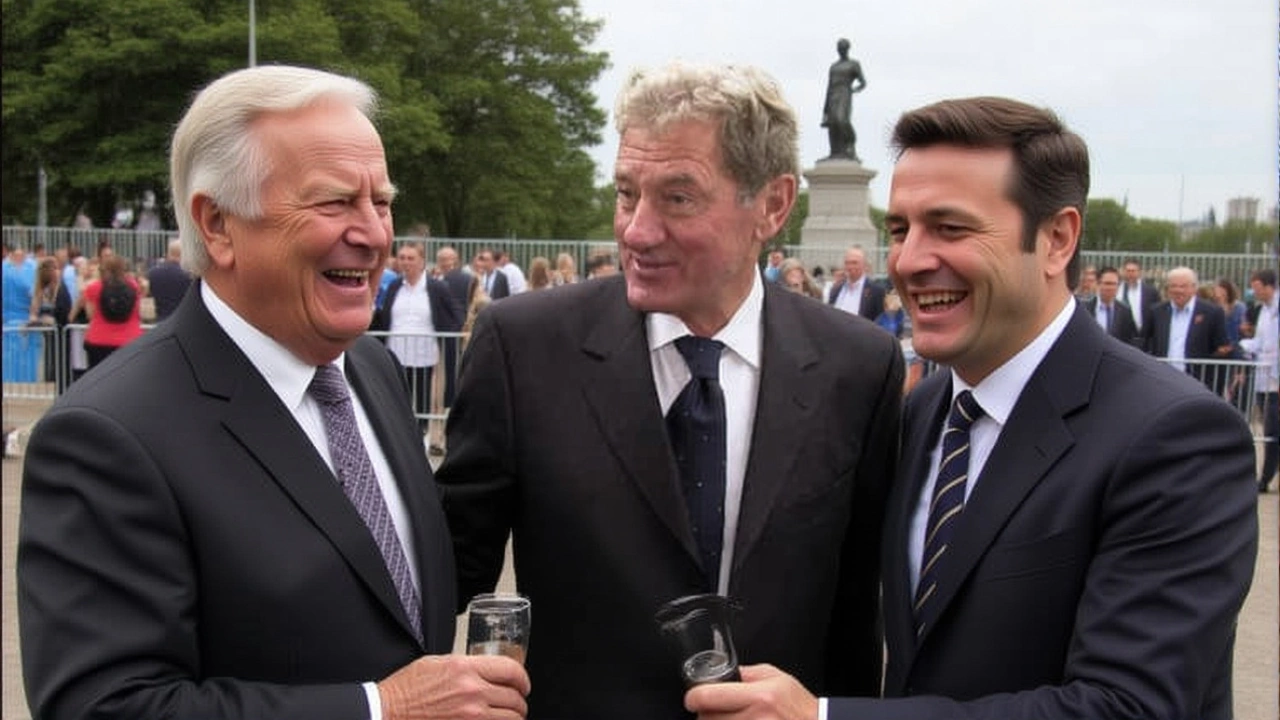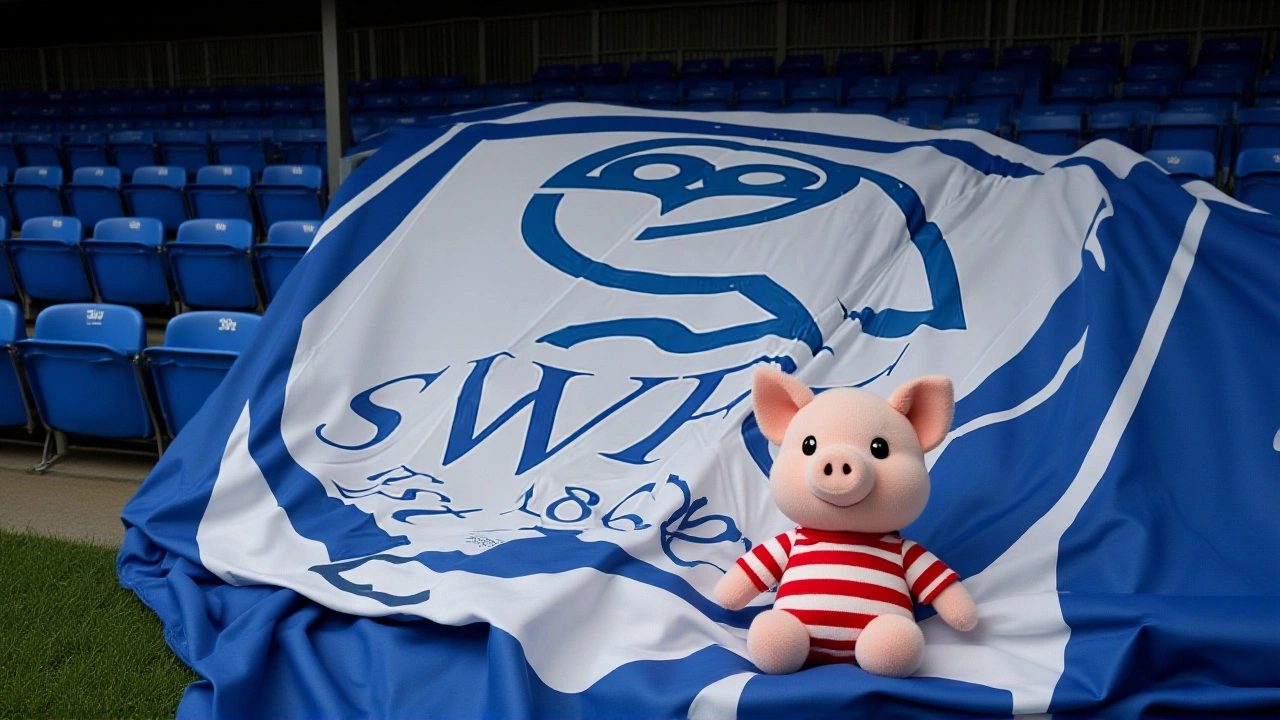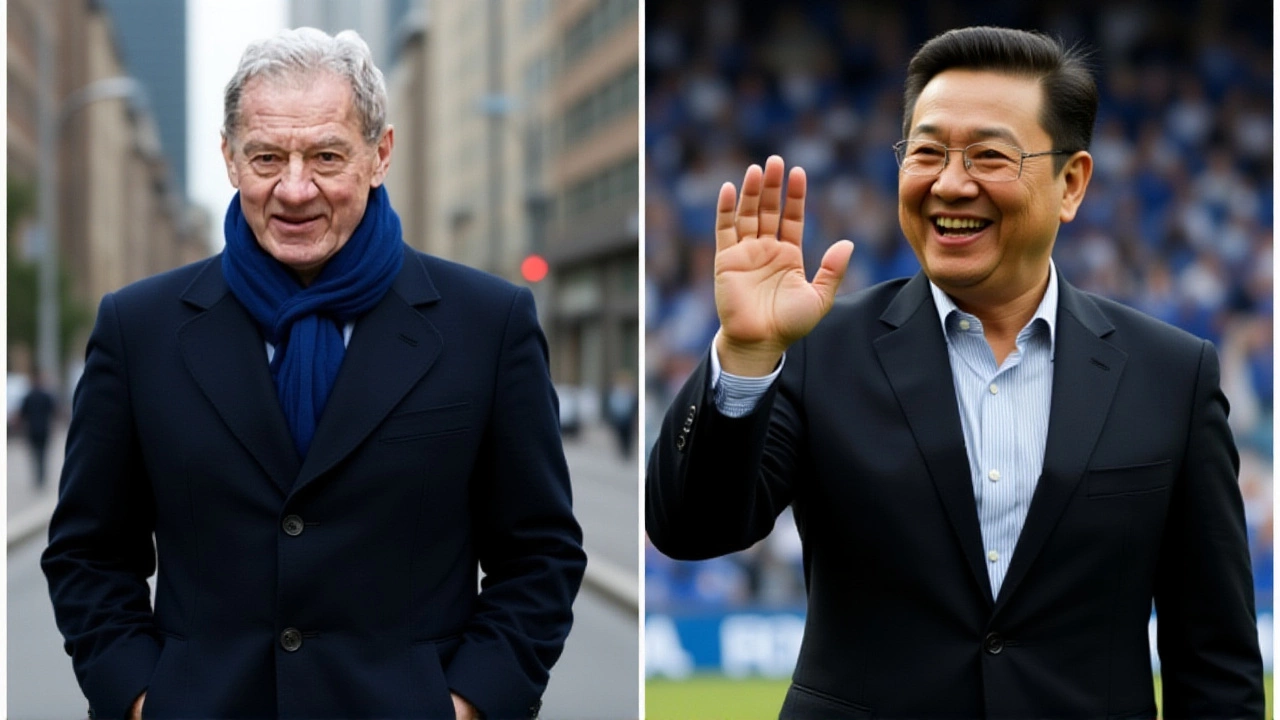When Milan Mandarić announced his pride in handing Leicester City over to Thai billionaire Vichai Srivaddhanaprabha in August 2010, few could have guessed the story would become one of football’s most unlikely sagas.
The sale, executed through the Asian Football Investments (AFI) consortium, marked the end of a turbulent three‑year ownership by Mandarić, who had first set his sights on the East Midlands club back in February 2006 with a bid hovering around £25 million. After a maze of negotiations, hidden debts and a brief family‑health‑related pause, Mandarić finally sealed the deal in November 2006.
Fast‑forward to 2016, and Leicester were lifting the Premier League trophy at 5,000‑to‑1 odds, a miracle that still makes heads spin in football cafés across the globe. The journey from a struggling Championship side to champions is a textbook case of how decisive ownership, strategic investment and a dash of daring can upend the status quo.
Background: From Serbian Roots to English Pitch
Mandarić, a Serbian‑American entrepreneur who made his fortune in chemicals and construction, first entered English football by buying Portsmouth in 1999. After a brief but colourful stint there, he set his sights on Leicester City, a club languishing in the lower leagues and wrestling with financial mis‑management.
Negotiations began on 24 February 2006, when Mandarić lodged a £25 million offer. The club’s extraordinary general meeting on 18 November 2006 gave the green light, but a hidden debt trove uncovered during due diligence caused a temporary stall on 25 January 2007. A week later, after returning from Serbia to tend to his ailing mother, Mandarić completed the purchase.
His tenure was short‑lived but pivotal. In August 2010, after securing a three‑year shirt‑sponsorship deal with King Power, he sold the club to a Thai‑led consortium – Asian Football Investments – owned by King Power Group’s chairman Vichai Srivaddhanaprabha.
The Srivaddhanaprabha Era: Vision, Investment, Community
When Vichai took the reins, Leicester were still a Championship club. He pledged to inject £180 million into the squad, infrastructure and community projects. The money helped secure promotion to the Premier League in 2014.
"We wanted to give the fans something to be proud of, not just a shirt on their backs," Vichai told a packed press conference that summer. His charismatic approach won over a fanbase that had grown weary of previous owners who offered little beyond empty promises.
Under his stewardship, Leicester built the state‑of‑the‑art King Power Stadium – a King Power Stadium – which became a fortress and a community hub. The owner’s habit of handing out sweets to children after matches, funding local schools and supporting charitable causes turned him into a beloved figure.
The 2016 Miracle: From 5,000‑to‑1 Underdogs to Champions
Leicester’s 2015‑16 season is now folklore. Managed by Claudio Ranieri, the Foxes defied textbook logic, finishing with 81 points, 10 ahead of the second‑placed side.
Key players – Jamie Vardy (who broke the Premier League record for consecutive games with a goal), Riyad Mahrez and N’Golo Kanté – blended skill, grit and work ethic. Their collective story was a masterclass in scouting, player development and a culture that celebrated every ounce of effort.
Come 2017, Leicester entered the Champions League for the first time, reaching the quarter‑finals before bowing out to Atlético Madrid. The achievement cemented the club’s new stature on the global stage.

Recent Ups and Downs: Relegation, Return, and Financial Headwinds
Tragedy struck on 27 October 2018 when Vichai’s helicopter crashed shortly after departing King Power Stadium. An investigation by the UK’s Air Accident Investigation Branch blamed a mechanical failure. The loss sent shockwaves through the football world, but his son, Aiyawatt Srivaddhanaprabha, stepped in as chairman and kept the family vision alive.
Despite the emotional blow, the club’s on‑pitch fortunes wobbled. By the end of the 2022‑23 season, Leicester were relegated after a dismal campaign. Yet the Foxes bounced back at the first attempt, winning the Championship in 2023‑24 with a blend of veteran resilience and youthful vigor.
Financially, however, the picture is less rosy. The club posted an £89.7 million loss for the 2022‑23 season and is currently in a dispute with the Premier League over alleged breaches of the profit‑and‑sustainability rules. Analysts warn that continued overspending could jeopardise future stability unless revenue streams are bolstered.
Why Mandarić’s Pride Still Resonates
Mandarić’s post‑sale reflections – “I’m proud of the decision; I saw a future there and it unfolded beyond anyone’s imagination” – capture a sentiment that rings true for many owners who recognize the value of handing a club to a steward with the right mix of capital and heart.
His death on 4 October 2025 at age 87 closed a chapter, but his legacy lives on through the flash‑in‑the‑pan turnaround that began with that 2010 transaction.
- 2006: Mandarić acquires Leicester City for ~£25 million.
- 2010: Sale to Asian Football Investments / King Power Group.
- 2014: Promotion to the Premier League.
- 2016: Premier League champions at 5,000‑to‑1 odds.
- 2018: Vichai’s tragic helicopter crash.
- 2024: Return to the Premier League after a single‑season relegation.

Looking Ahead: Sustainability, Ambition, and Community
The Foxes now face a crossroads: can they balance ambition with the financial prudence demanded by the Premier League’s new financial‑fair‑play framework? Aiyawatt’s recent statements suggest a shift toward “smart growth” – focusing on academy development, commercial partnerships and maintaining the community‑first ethos that made his father a legend.
Whatever the outcome, the story that began with Mandarić’s pivot in 2010 will keep reminding fans that football isn’t just about dollars; it’s about dreams, daring, and the people willing to turn a struggling club into a household name.
Frequently Asked Questions
How did the 2010 sale impact Leicester City’s on‑field performance?
The sale injected £180 million of capital, upgraded training facilities and brought in a visionary chairman. Within four years Leicester earned promotion to the Premier League and, two years later, clinched the 2015‑16 title, a trajectory directly linked to the increased investment and stability after the acquisition.
What financial challenges does Leicester face after the 2022‑23 loss?
The £89.7 million deficit has raised concerns about breaching the Premier League’s profit‑and‑sustainability rules. Analysts warn that without tighter budgeting, the club could face sanctions or reduced revenue sharing, prompting a shift toward academy‑generated talent and more measured transfer spending.
Who succeeded Vichai Srivaddhanaprabha after his death?
His son, Aiyawatt "Top" Srivaddhanaprabha, took over as chairman. He has continued his father’s community‑focused approach while pledging to modernise the club’s financial strategy.
Why is the 2016 Premier League win considered a ‘miracle’?
Leicester entered the season 5,000‑to‑1 outsiders, had never won a top‑flight English title, and faced competition from financially superior clubs. Their triumph was built on relentless work‑rate, a cohesive squad, and tactical mastery from Claudio Ranieri, making it one of the most improbable victories in sports history.
What legacy did Milan Mandarić leave for the club?
Mandarić’s willingness to sell to a committed investor set the stage for Leicester’s renaissance. His acknowledgment that the club needed fresh capital and vision proved prescient, and his pride in the sale underscores the lasting impact of that strategic hand‑over.
